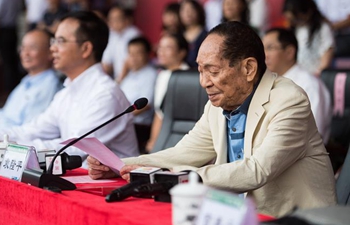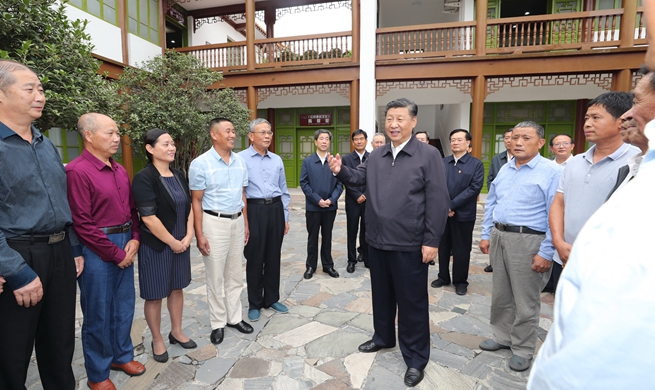UNITED NATIONS, Sept. 16 (Xinhua) -- UN Undersecretary-General for Humanitarian Affairs Mark Lowcock on Monday warned that Yemen's struggling economy will exacerbate the country's humanitarian situation.
"This is an issue that requires more attention," Lowcock told the Security Council in a briefing, highlighting the depreciation of the Yemeni currency.
"Recent indicators are alarming. The exchange rate is once more depreciating and is now hovering at just over 600 Yemeni rial to the dollar, compared ... to 215 rial to the dollar before the crisis," he said. "We have not seen the rate cross the 600-rial threshold since last year, when uncontrolled depreciation seized the country and prompted major hikes in food prices."
As Yemen imports nearly everything, higher exchange rates mean millions more people are unable to afford food and other essential goods. Last year, the collapse of the currency was a primary driver in pushing Yemen to the brink of widespread famine, said Lowcock.
He called for injections of foreign exchange to help stabilize the exchange rate. "We need a predictable, regular program for these injections, which I hope Yemen's partners will provide."
Lowcock deplored the lack of humanitarian access in Yemen. "The operating environment for aid agencies has perhaps never been worse than it is right now," he said.
In June and July, humanitarian agencies reported 300 incidents that hindered humanitarian assistance, affecting 4.9 million people. Almost 90 percent of incidents were due to bureaucratic impediments and other kinds of interference, particularly on the part of Houthi rebels.
Restrictions imposed by Houthi rebel authorities include obstacles to beneficiary registration, attempts to divert aid, and efforts to control the selection of implementing partners. Humanitarian workers have been detained at checkpoints and, in several cases, arbitrarily arrested. Staff also face intimidation and harassment at Sanaa airport, said Lowcock.
Houthi rebel authorities are now seeking to introduce new regulations for international nongovernmental organizations that would undermine humanitarian principles, he said.
In the south, recent clashes between the government and forces affiliated with the Southern Transitional Council undermined humanitarian efforts, said Lowcock.
Although humanitarian workers strive to keep operations on track, the volatility, if it is not addressed, will continue to present a serious potential threat to aid operations in the south, he warned.
As good news, Lowcock reported that he had just received confirmation from Saudi Arabia that the country plans to transfer half a billion dollars in a single payment on Sept. 25 to his office in discharge of a Saudi pledge made for the Yemen humanitarian response plan. The United Arab Emirates has also just allocated 200 million dollars to the response plan.

















